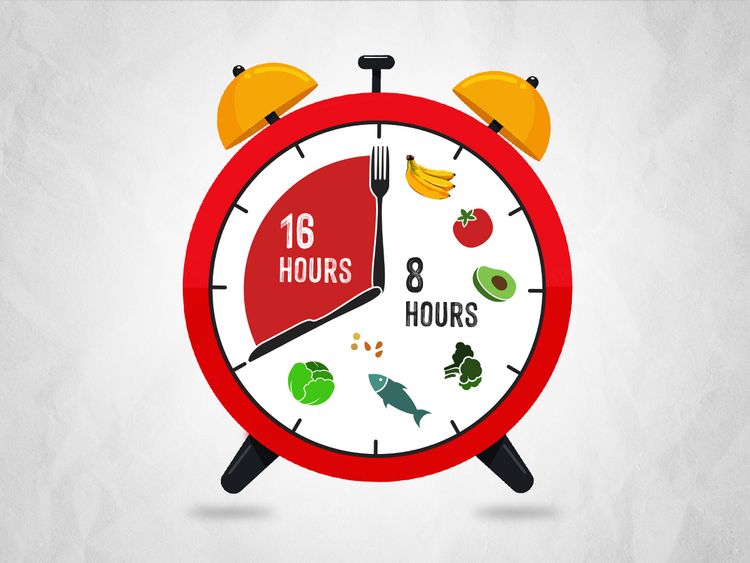Intermittent Fasting: A Lifestyle Change For Better Health Metabolism
Intermittent fasting is a way of eating that some people find helpful for their health and weight. It involves alternating between eating and not eating for specific periods. It can be beneficial, but it’s important to be cautious. When exploring different fasting methods to incorporate into your lifestyle, prioritize safety considerations. It’s important to understand the nuances of various fasting methods before starting.
Before you start intermittent fasting, it’s a good idea to talk to a doctor or a diet expert, especially if you have health issues. They can give you advice tailored to your needs. When done carefully and with attention to a balanced diet, intermittent fasting might help with weight loss, making your body use insulin better, and improving your heart and brain health. Some even think it could help you live longer. It’s flexible and can fit different lifestyles.
Remember, it doesn’t work the same for everyone, and how your body reacts may be different. It’s crucial to pay attention to your body, stay hydrated, and eat healthy foods during the times you can eat. It might take a while to get used to, but with patience, you can enjoy the benefits. Keep in mind that intermittent fasting isn’t the only way to eat well. What’s most important is finding a balanced way of eating that suits you and keeps you healthy and happy.
What is Intermittent Fasting?
Intermittent fasting is like planning when to eat and when not to eat. Instead of snacking all day long, you decide specific times to have your meals and then intentionally not eat for a while. This break from eating can range from a few hours to a whole day or even longer. While you’re fasting, you can drink things like water, tea, or coffee, but don’t put sugar or cream in them. Extended fasting methods may require fasting for a full 24 hours or even longer.
The Popularity of Intermittent Fasting:
Many folks are interested in intermittent fasting because it might help you lose weight, use energy better, and be good for your health. What’s nice about it is you don’t have to follow strict diets or count calories all the time. You can fit it into your daily life and routines, which makes it easy to manage how you eat. That’s why it’s become so popular and trendy. Before starting any intermittent fasting regimen, consult a healthcare professional to address safety considerations. Some fasting methods involve daily time-restricted eating windows.
:max_bytes(150000):strip_icc()/overview-intermittent-fasting-2223396-a-9c901805a7fa451088810ccba49e4d59.jpg)
Understanding Intermittent Fasting:
Types of Intermittent Fasting:
Intermittent fasting comes in different styles, but they all involve cycling between eating and fasting. Here are some common types:
The 16/8 Method:
You fast for 16 hours and have an 8-hour eating window. For example, you might skip breakfast and eat your first meal at noon, then finish eating by 8 PM.
The 5:2 Diet:
You eat normally for 5 days of the week and limit your calorie intake to about 500-600 calories on the other 2 non-consecutive days.
Eat-Stop-Eat:
This involves fasting for a full 24 hours once or twice a week. For instance, you might have dinner at 7 PM and not eat again until 7 PM the next day.
The Alternate-Day Fasting:
You alternate between days of regular eating and days of very low-calorie intake or fasting.
The Warrior Diet:
You fast for most of the day and eat one large meal in the evening, typically within a 4-hour eating window.
The OMAD (One Meal A Day) Diet:
You eat just one meal a day, usually within a 1-2 hour window, and fast for the rest of the day.
:max_bytes(150000):strip_icc()/IntermittentFasting_final-0b2134c18e154613b64a21a48b5b0114.jpg)
How Does Intermittent Fasting Work?
Intermittent fasting works in a few ways:
Insulin Regulation:
When you eat, your body releases insulin to help process the incoming food. During fasting periods, insulin levels drop, which encourages your body to use stored fat for energy. This can potentially lead to weight loss.
Cellular Repair:
Fasting triggers a process called autophagy, where your cells remove damaged components and regenerate. This may contribute to improved overall health.
Metabolism Boost:
Intermittent fasting can increase your metabolic rate, which means your body burns calories more efficiently.
Hormone Regulation:
Fasting can affect hormones related to hunger, fullness, and fat storage. It may reduce appetite and lead to decreased calorie intake.
Blood Sugar Control:
Some people experience better blood sugar control and insulin sensitivity through intermittent fasting, which can be beneficial for those at risk of type 2 diabetes.
Weight Management:
By reducing calorie intake and promoting fat burning, intermittent fasting can help with weight management and fat loss.
It’s important to note that while intermittent fasting can have potential benefits, it may not be suitable for everyone. It’s essential to consult with a healthcare professional before starting any fasting regimen, especially if you have underlying health conditions or are taking medications. Additionally, the success of intermittent fasting depends on individual preferences and needs, so what works best for one person may not work the same way for another. Health experts emphasize the importance of adhering to safety considerations during intermittent fasting.

The Science Behind Intermittent Fasting:
Weight Management:
Intermittent fasting can aid in weight management through several mechanisms:
- Calorie Restriction: By limiting the time you have to eat, you naturally reduce your calorie intake, which can lead to weight loss.
- Increased Fat Burning: Fasting periods lower insulin levels, allowing your body to use stored fat for energy.
- Appetite Regulation: Some people find that intermittent fasting helps control their appetite, making it easier to eat fewer calories overall.
Improved Insulin Sensitivity:
Fasting can enhance how your body responds to insulin, a hormone that regulates blood sugar. Improved insulin sensitivity can reduce the risk of type 2 diabetes and help manage existing diabetes. When you fast, your cells become more receptive to insulin, which can lower blood sugar levels and reduce insulin resistance. Ensure you are aware of safety considerations associated with extended fasting periods.
Cellular Autophagy:
Intermittent fasting triggers a process called autophagy. During autophagy, your cells clean out damaged or dysfunctional components and recycle them. This cellular “housekeeping” may have various health benefits, including reducing the risk of certain diseases and potentially slowing down the aging process. Safety considerations vary depending on the chosen intermittent fasting method.
Heart Health:
Intermittent fasting can contribute to heart health by:
- Reducing Risk Factors: It may lower risk factors for heart disease, such as high blood pressure, high cholesterol levels, and obesity.
- Improved Blood Lipids: Some studies suggest that fasting can lead to improvements in blood lipid profiles, including lower triglyceride levels and increased “good” HDL cholesterol.
- Reduced Inflammation: Fasting may reduce inflammation in the body, which is a factor in heart disease development.
Brain Health:
Intermittent fasting may offer benefits for brain health and cognitive function:
- BDNF Production: Fasting can increase the production of brain-derived neurotrophic factor (BDNF), a protein that supports the growth and maintenance of nerve cells. Higher BDNF levels are associated with improved brain function.
- Neuroprotection: Fasting may protect the brain against conditions like Alzheimer’s and Parkinson’s disease by reducing oxidative stress and inflammation.
Longevity:
Some animal studies suggest that intermittent fasting might extend lifespan by promoting cellular repair, reducing the risk of age-related diseases, and improving metabolic health. While these findings are promising, more research is needed to confirm its effects on human longevity.
It’s important to remember that the science behind intermittent fasting is still evolving, and individual responses can vary. Before adopting any fasting regimen, especially for extended periods or if you have underlying health conditions, consult with a healthcare professional to ensure it’s safe and suitable for you. Additionally, a balanced and nutritious diet during eating periods remains important for overall health.

Practical Considerations for Intermittent Fasting:
Consulting a Healthcare Professional:
Before you begin intermittent fasting, it’s important to talk to a doctor, especially if you have health issues, are pregnant or nursing, or take medications. They can help decide if fasting is safe and the right choice for your health. They’ll also guide you on the best way to do it. Understanding safety considerations can help you make informed decisions about intermittent fasting.
Staying Hydrated:
When you’re not eating, make sure you drink enough water. Water is the best choice, but you can also have plain herbal tea or black coffee if you like them. Staying hydrated is important for your overall health and prevents dehydration, especially if you’re fasting for a long time. Safety considerations should include factors like hydration and nutrient intake.
Listening to Your Body:
Pay attention to how your body feels during intermittent fasting. If you feel very hungry, dizzy, weak, or have other uncomfortable symptoms, it’s okay to stop fasting and eat. Fasting shouldn’t harm you, and you can adjust your fasting schedule to make sure you feel good. Take safety considerations seriously to avoid potential health risks while fasting intermittently.
Choosing Healthy Foods:
When you do eat during your eating time, focus on healthy foods. These are foods that have vitamins, minerals, and other things your body needs to stay healthy. Eat whole grains, lean proteins, fruits, vegetables, and healthy fats. Try not to eat too many processed or sugary foods, as they can lessen the benefits of fasting for your health. Safety considerations play a vital role in determining the suitability of intermittent fasting for individuals. People often experiment with different fasting methods to see which one yields the desired results.
Tips for successful intermittent fasting
Here are a few additional practical tips for successful intermittent fasting:
Start Slowly
If you’re new to fasting, consider beginning with shorter fasting windows and gradually extending them as your body adapts.
Plan Your Meals
Have a meal plan for your eating window to ensure you’re getting balanced nutrition. This can help you avoid overeating or making poor food choices due to excessive hunger.
Be Consistent
Try to stick to a regular fasting schedule to help your body adjust and optimize the benefits of fasting.
Monitor Your Progress
Keep track of your fasting schedule and how you feel throughout the process. This can help you identify what works best for you and make necessary adjustments.
Stay Mindful
Intermittent fasting isn’t just about when you eat; it’s also about mindful eating during your eating window. Pay attention to your hunger cues and enjoy your meals without distractions.
Remember that intermittent fasting is not suitable for everyone, and individual results may vary. Always prioritize your health and well-being, and don’t hesitate to seek guidance from a healthcare professional or registered dietitian to ensure you’re practicing fasting safely and effectively. It’s crucial to strike a balance between your goals and safety considerations during intermittent fasting. Health professionals can provide guidance on which fasting methods align with your health goals.

Getting Started with Intermittent Fasting:
Tips for a Successful Start:
Choose the Right Method:
Select an intermittent fasting method that suits your lifestyle and preferences. The 16/8 method (16 hours fasting, 8-hour eating window) is a popular and relatively easy option for beginners.
Gradual Transition:
If you’re new to fasting, consider gradually increasing the fasting duration. Start with a 12-hour fast and then extend it over time.
Stay Hydrated:
Drink plenty of water, herbal tea, or black coffee during fasting periods to help control hunger and stay hydrated. Your lifestyle can greatly impact how you experience intermittent fasting, so it’s important to find an approach that suits you.
Plan Your Meals:
Prepare balanced and nutritious meals for your eating window. Include lean proteins, whole grains, fruits, vegetables, and healthy fats to keep you satisfied. Embracing a healthier lifestyle may involve integrating intermittent fasting as a sustainable dietary change.
Timing Matters:
Experiment with different eating windows to find what suits you best. Some people prefer morning eating, while others find it easier to eat later in the day. When adjusting your lifestyle to include intermittent fasting, be patient and make gradual shifts.
Stay Busy:
Keep yourself occupied during fasting periods to avoid thinking about food. Engaging in activities or work can help distract from hunger. People from all walks of life can adopt intermittent fasting to improve their overall lifestyle.

Common Challenges and How to Overcome Them:
Hunger:
It’s normal to experience hunger, especially in the beginning. To manage it, drink water, herbal tea, or black coffee, and remind yourself that the hunger will typically subside after a while. Some individuals incorporate intermittent fasting into their weight loss journey as a way to transform their lifestyle.
Headaches and Irritability:
Some people may witness headaches or perversity, particularly during the adjustment phase. Ensuring proper hydration and getting enough sleep can help alleviate these symptoms.
Social Situations:
Social events and mealtimes with family and buddies can be grueling. Communicate your fasting schedule to those close to you so they understand and support your choice.
Plateaus or Slow Progress:
still, consider reviewing your food choices during your eating window and insure you ’re not overcompensating for fasting ages by gorging, if you ’re not seeing the asked results.
Overeating During Eating Windows:
Some individuals may overindulge or make unhealthy food choices during their eating windows. Practice aware eating, plan your refection’s in advance, and avoid keeping tempting snacks readily available.
Lack of Energy:
still, insure you ’re getting enough rest and consider conforming your fasting window to more align with your natural energy ranks, If you feel fatigued during fasting.
Digestive Issues:
Some people may experience digestive discomfort when they first start fasting. This can be due to changes in meal timing. However, consult a healthcare professional, If problems persist.
Dehydration:
While fasting, it’s crucial to maintain proper hydration. Insure you ’re drinking enough fluids during fasting ages to help dehumidification. A key benefit of intermittent fasting is its flexibility, allowing you to maintain your desired lifestyle.

Potential Benefits and Risks of Intermittent Fasting:
Weight Loss and Weight Management:
Benefits:
Effective Weight Loss:
Intermittent fasting can help some people reduce calorie intake and burn fat, making it an effective tool for weight loss.
Improved Fat Metabolism:
Fasting periods can enhance the body’s ability to use stored fat for energy.
Appetite Control:
Some individuals find that intermittent fasting helps them better control their appetite and reduce overall calorie consumption.
Risks and Concerns:
Overeating During Eating Windows:
Some people may compensate for fasting periods by overeating or making unhealthy food choices during their eating windows, which can negate the benefits of fasting.
Not Suitable for Everyone:
Intermittent fasting may not be safe or suitable for individuals with certain medical conditions, such as diabetes, eating disorders, or a history of low blood sugar (hypoglycemia). Consult a healthcare professional before starting.
Potential Muscle Loss:
Extended fasting periods without adequate protein intake can lead to muscle loss. To mitigate this, ensure you’re getting enough protein during your eating windows.
Hunger and Discomfort:
Intermittent fasting can cause hunger and discomfort, especially during the adjustment phase. This may affect some people’s ability to stick with the regimen.
Lack of Nutrient Balance:
Poor food choices during eating windows can result in nutrient deficiencies and an imbalanced diet. It’s important to prioritize nutrient-dense foods. Intermittent fasting can be a sustainable dietary choice when it complements your lifestyle lifestyle and safety.

Health Benefits:
Benefits:
Improved Insulin Sensitivity
Fasting can enhance how your body responds to insulin, potentially reducing the danger of type 2 diabetes and helping manage blood sugar ranks.
Heart Health
Some studies suggest that intermittent fasting may reduce risk factors for heart disease, including high blood pressure, high cholesterol levels, and obesity.
Cellular Autophagy
Fasting triggers a process called autophagy, which may help your cells repair and remove damaged factors, potentially reducing the danger of certain conditions and promoting life.
Brain Health
Intermittent fasting may support brain health by increasing the production of brain-derived neurotrophic factor (BDNF) and protecting against neurodegenerative diseases.
Longevity
Animal studies have shown that intermittent fasting can extend lifetime, although further research is demanded to determine its effects on mortal life.
Risks and Concerns:
Nutrient Deficiencies:
A poorly planned fasting regimen may lead to nutrient deficiencies, so it’s important to consume a balanced diet during eating windows.
Potential Disruption of Social Life:
Fasting schedules may clash with social events or family refection’s, which can be challenging for some individualities.
Digestive Issues:
Some people may experience digestive discomfort or irregular bowel movements when adjusting to intermittent fasting.
In simple terms, intermittent fasting can have benefits like helping with weight, making your body use insulin better, and maybe even improving your heart and brain health. But it’s not for everyone, and there are things to be careful about, like making sure you eat balanced meals and not eating too much during your eating times. It’s important to talk to a doctor before you start, especially if you have health problems. Not everyone reacts the same way to fasting, so think about your health and how you feel. When you change your fasting plan, suppose about your lifestyle and safety considerations. Some people in busy cities like intermittent fasting because it’s flexible. You can try different fasting ways if you want but keep in mind about your safety regarding your health.

Books, websites, and apps that can provide further information and guidance on intermittent fasting:
Certainly! The key to success with intermittent fasting lies in finding fasting methods that work for you. Here are some books, websites, and apps that can provide further information and guidance on intermittent fasting:
Books:
- “The Obesity Code” by Dr. Jason Fung: This book explores the science behind intermittent fasting and its potential impact on weight management and health.
- “The Complete Guide to Fasting” by Dr. Jason Fung and Jimmy Moore: This comprehensive guide covers various aspects of fasting, including intermittent fasting, and provides practical advice and case studies.
- “Delay, Don’t Deny” by Gin Stephens: This book offers a personal perspective on intermittent fasting and includes practical tips and success stories.
- “The Fast Diet” by Dr. Michael Mosley and Mimi Spencer: The authors discuss the 5:2 fasting approach and its potential benefits for weight loss and health.
- “Eat Stop Eat” by Brad Pilon: This book delves into the concept of intermittent fasting and provides insights into its effects on metabolism and weight management. Intermittent fasting can help promote a healthier lifestyle by encouraging mindful eating habits.

Websites:
- www.dietdoctor.com: Diet Doctor offers a wealth of information on various low-carb and fasting diets, including intermittent fasting. They provide articles, recipes, and guides.
- www.healthline.com/nutrition/intermittent-fasting-guide: Healthline offers a comprehensive guide to intermittent fasting, including its benefits, methods, and potential risks.
- www.verywellfit.com/intermittent-fasting-4684018: Verywell Fit provides articles and resources on intermittent fasting, along with practical tips for getting started.
- www.ncbi.nlm.nih.gov: The National Center for Biotechnology Information (NCBI) is a valuable resource for accessing scientific research and studies related to intermittent fasting and its effects on health.
Apps:
Zero: A Comprehensive Fasting App
Zero is a popular fasting app that helps you track your fasting periods and offers educational content on intermittent fasting.
MyFitnessPal: Fasting Tracking for Active Lifestyles
While not specifically designed for intermittent fasting, MyFitnessPal can help you track your food intake and eating windows, making it easier to monitor your fasting progress. Many athletes and fitness enthusiasts integrate intermittent fasting into their active lifestyles.
Life Fasting Tracker: Community Support for Your Fasting Journey
This app allows you to track your fasting hours and provides a community for support and motivation. Understanding your lifestyle goals can help you tailor an intermittent fasting plan that aligns with your objectives.
FastHabit: Customized Fasting Plans for a Balanced Life
FastHabit offers a range of intermittent fasting plans and allows you to customize your fasting schedule to fit your preferences. Intermittent fasting can be a practical choice for those seeking a balanced and sustainable lifestyle.
Prioritize Your Health: Consulting Professionals and Embracing Safe Intermittent Fasting as a Lifestyle
Please keep in mind that while these resources can be helpful, it’s essential to consult with a healthcare professional or registered dietitian before starting any fasting regimen, especially if you have underlying health conditions or concerns. Maintaining a consistent intermittent fasting schedule can become a natural part of your daily lifestyle. They can provide personalized guidance and ensure that intermittent fasting is safe and suitable for you. When practicing intermittent fasting, it’s crucial to pay attention to safety considerations lifestyle and safety. It involves deciding when to eat and when to skip meals, focusing on timing rather than specific foods, and can be popular for its potential health and weight management benefits. Don’t overlook safety considerations lifestyle and safety, as they are key to a successful and healthy intermittent fasting experience. Adhering to specific fasting methods can help you achieve your health and wellness objectives.

Conclusion: Embracing Intermittent Fasting for Health and Well-Being
Intermittent fasting is like a food schedule where you decide when to eat and when to skip meals. It’s not so much about what you eat, but when you eat it. Many people like it because they think it can be good for your health and help you manage your weight. Incorporating intermittent fasting into your lifestyle requires careful planning and commitment. When practicing intermittent fasting, it’s essential to understand the safety considerations. It’s important to understand the nuances of various fasting methods before starting. Exploring various fasting methods empowers you to discover the one that aligns most seamlessly with your lifestyle and safety considerations.
